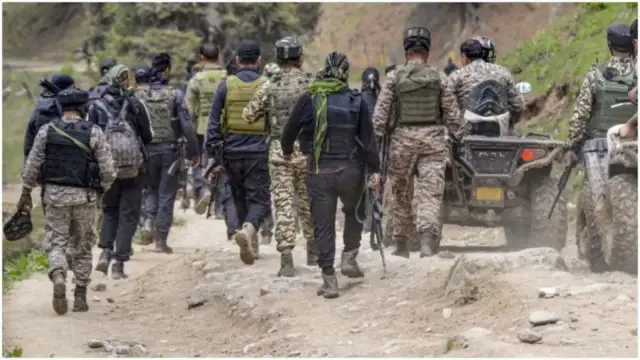French political crisis: PM Barnier’s government topples while Macron faces uncertain future
World News: Amid these challenges, Macron’s political opponents have increasingly called for his resignation, though Macron has shown little inclination to step down.

World News: On Wednesday, French opposition lawmakers succeeded in bringing down Prime Minister Michel Barnier's government, plunging the European Union’s second-largest economy into a political crisis. The no-confidence motion was passed with 331 votes, marking a significant blow to the stability of the government. As a result, Barnier is expected to tender his resignation and that of his government to President Emmanuel Macron. This marks the first time since 1962 that a French government has lost a confidence vote, signaling unprecedented political instability.
Macron’s Snap Election Leads to Polarized Parliament
The crisis unfolded after President Macron’s decision to call a snap election in June, which ultimately resulted in a polarized parliament. The fractured political landscape has left France with a weakened government, unable to pass critical legislation. This uncertainty threatens the country’s ability to address its pressing budget deficit and could delay the crucial 2025 budget, further complicating economic planning for the year ahead. Despite France’s constitution allowing special measures to avoid a government shutdown, the political fallout is already being felt.
French Political Turmoil Weighs on the European Union
This political upheaval has far-reaching consequences for the European Union, already dealing with its own crises, including the collapse of Germany’s coalition government. As Macron grapples with this internal struggle, the impact on France’s ability to lead within the EU is clear. The ongoing instability leaves the union vulnerable, especially as global challenges continue to mount.
Unpopular Budget Sparks Opposition from Left and Far-Right
The opposition’s main grievance stems from Barnier’s use of special constitutional powers to push through a controversial budget. The budget, which sought 60 billion euros in savings to reduce France's deficit, faced fierce opposition from both left-wing and far-right lawmakers. Far-right leader Marine Le Pen condemned the budget as “dangerous, unfair, and punitive,” with her National Rally party playing a central role in the effort to collapse the government. Le Pen argued that this was the only means to protect the French people from an austerity-driven fiscal plan.
Uncertain Future for Macron’s Leadership
France now faces deep political uncertainty, which is unsettling both investors and markets. French borrowing costs briefly surpassed those of Greece earlier this week, a clear sign of the market’s growing concerns. Macron now finds himself at a crossroads, with sources indicating that he hopes to install a new prime minister swiftly, ideally before the re-opening ceremony of Notre-Dame Cathedral this Saturday, which U.S. President-elect Donald Trump is scheduled to attend.
Macron’s Dilemma: Caretaker Government or New Leadership?
Macron’s options are limited. He may opt to appoint a new prime minister, but the deeply divided parliament will pose significant challenges in securing enough support to pass essential bills, including the 2025 budget. Alternatively, he could ask Barnier to remain in a caretaker role while he searches for a leader capable of uniting the fragmented parliament. However, this approach could risk ongoing deadlock and political chaos.
Possible Paths Forward Amid Rising Political Tension
Amid these challenges, Macron’s political opponents have increasingly called for his resignation, though Macron has shown little inclination to step down. This protracted crisis has not only intensified domestic political divisions but has also placed pressure on Le Pen’s National Rally, a party that has long claimed it offers a stable alternative. The future of French governance remains uncertain as both political factions blame one another for the crisis, and Macron’s leadership is now under intense scrutiny.













